
There are many different types of antibiotics, specially selected for treating different kinds of bacterial infections. Thus, you should never take an antibiotic on your own, without being certain that the type of the medication you are taking is proper for the treatment of your condition.Nitrofuratoin Tablets are Antibiotics
Nitrofurantoin or Furadantin, Macrobid, Macrodantin, Nitrofur Mac, Nitro Macro, Urantoin are all names for the antibiotic medication, used to fight the bacterial infections in the body. The drug is usually used to treat urinary tract infections, often caused by Escherichia coli.
Nitrofurantoin damages the bacterial DNA and kills the bacteria. Therefore, this drug is known as bactericidal drug.
This medication should be used exactly as it was prescribed. Use it for as long and in the doses as it was recommended by your doctor. Do not stop the treatment even though you might feel better after some time, because the infection should be completely cured.
This medication is not meant to cure any viral infections, like cold or flu, so don’t use it in these cases.
Antacids should be used only if your doctor recommends so. Some chemicals in antacids may interfere with nitrofurantoin absorption.
If you fail to use nitrofuratoin tablets properly you may face many different side-effects. Gastrointestinal problems are the most common scenario.
Additionally, Patients have reported nausea, vomiting, abdominal cramps and pains, diarrhea and anorexia. Most patients have these issues when using the crystalline form of the medication (Furadantin) and switching to macrocrystalline Macrodantin usually solves problems.
Sometimes, taking nitrofurantoin with some food might relieve the intolerance.
Respiratory problems, being known side-effect of this antibiotic medication, can be acute or chronic.
Acute problems include hypersensitivity, eosinophilia and lung problems. Once the medication is stopped, the symptoms subside.
Alternatively, after 6 months of the therapy, serious chronic lung problems may appear, along with interstitial fibrosis, positive antinuclear antibodies, cyanosis, alveolar hemorrhage, pneumonitis and liver problems. Pulmonary toxicity can also be an acute or chronic condition triggered by nitrofuratoin tablets. It is characterized by fever, chills, cough and dyspnea.
Nitrofurantoin may cause the EKG changes too, usually connected with pulmonary problems.
Furthermore, this medication might affect the liver, causing acute or chronic problems. There were cases of hepatitis and hepatic necrosis and even hepatic failure. Also, patients experienced increase of the transaminase and bilirubin levels, cholestatic jaundice, depression, nausea and abdominal pains.
Hepatotoxicicity and pulmonary toxicity are most likely to be caused by combination of reaction of the immune system to the drug and the toxicity of the medication. Nitrofurantoin affects the metabolism as well, causing an increase in different enzymes, alkaline phosphatase, lactate dehydrogenase and creatine phosphokinase and also elevating the levels of phosphorus in the serum.
This drug might cause many blood disorders. Patients reported anemias, thrombocytopenia, leukopenia, agranulocytosis, eosinophilia, cyanosis and decreased levels of hemoglobin and glucose-6-phosphate dehydrogenase.
Nervous system side effects related to this drug include peripheral neuropathy, headache and dizziness.
Elderly, anemic, diabetic or patients with kidney problems have a heightened risk of developing peripheral neuropathy. In rare cases patients report intracranial hypertension, vertigo and cerebellar dysfunction.
Finally, hypersensitivity reactions to nitrofurantoin include angioedema, different skin changes, fever, chills, joint and muscle pains and anaphylaxis.
What is Different in Oxytetracycline?
Oxytetracycline is a tetracycline antibiotic, used to treat bacterial infections. It interferes with the production of bacterial protein, affecting the growth and development of bacteria and stopping the progress of the infection.Some bacteria are resistant to this medication and doctor will take a sample of the infection and make sure it reacts to the antibiotic. This antibiotic can be used to treat many different bacterial infections, but it’s mostly used in Chlamydia and Mycoplasma infections. Also, oxytetracycline can be used to treat acne, dental infections, and chronic cases of bronchitis. Some rare infections, such as Q fever, Lyme disease, and leptospirosis are treated with this medication too.
Oxytetracycline is a broad spectrum antibiotic and it may cause colitis (inflammation of the bowel). Any case of severe diarrhea might be connected to this symptom and should be reported to the doctor.
This medication is known to cause sensitivity to sunlight. Therefore, avoid direct sunlight and sunlamps while using this antibiotic. The most common side effects among the patients using oxytetracycline are: nausea, vomiting, abdominal and swallowing problems. Some patients reported throat irritation, appetite loss, inflammation and photosensitivity.
Some more serious adverse effects associated with the oxytetracycline use might be blood and liver problems. Consult your doctor if you happen to experience bruising, infections or yellowing of your eyes or the skin. Also, there were cases of persistent headaches and vision problems. Some people have developed raised pressure within the skull while using oxytetracycline.
Both Nitrofuratoin tablets and oxytetracycline are antibiotics, used for treating different types of bacterial infections. Even though these antibiotics are quite useful, in order to really benefit from them, one needs to use them properly. Any inadequate use may lead to side-effect which range from mild to serious.
If you happen to notice any of the side-effects mentioned above, stop taking the antibiotics your doctor prescribed you and call pay him/her a visit, seeking further instructions.
- medlineplus.gov/druginfo/meds/a682291.html
- www.nhs.uk/conditions/contraception/antibiotics-contraception/
- Photo courtesy of Kristoferb by Wikimedia Commons https://commons.wikimedia.org/wiki/File:Nitrofurantoin.JPG


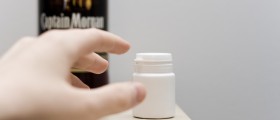





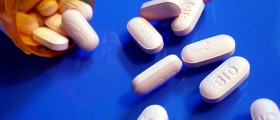

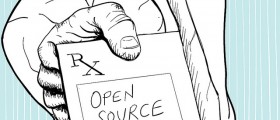
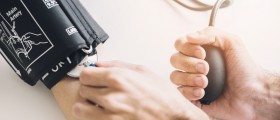


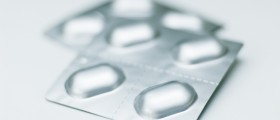


Your thoughts on this
Loading...